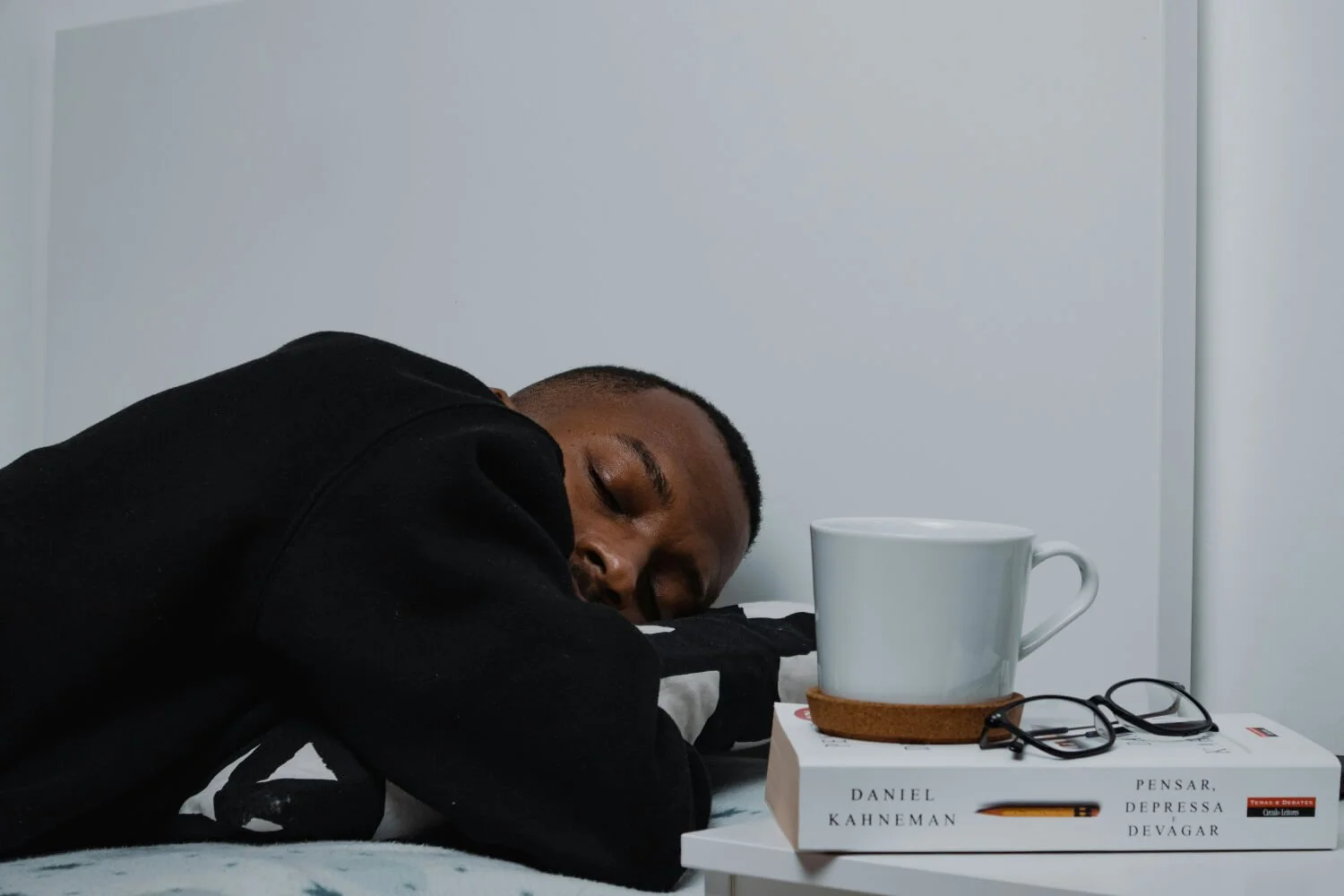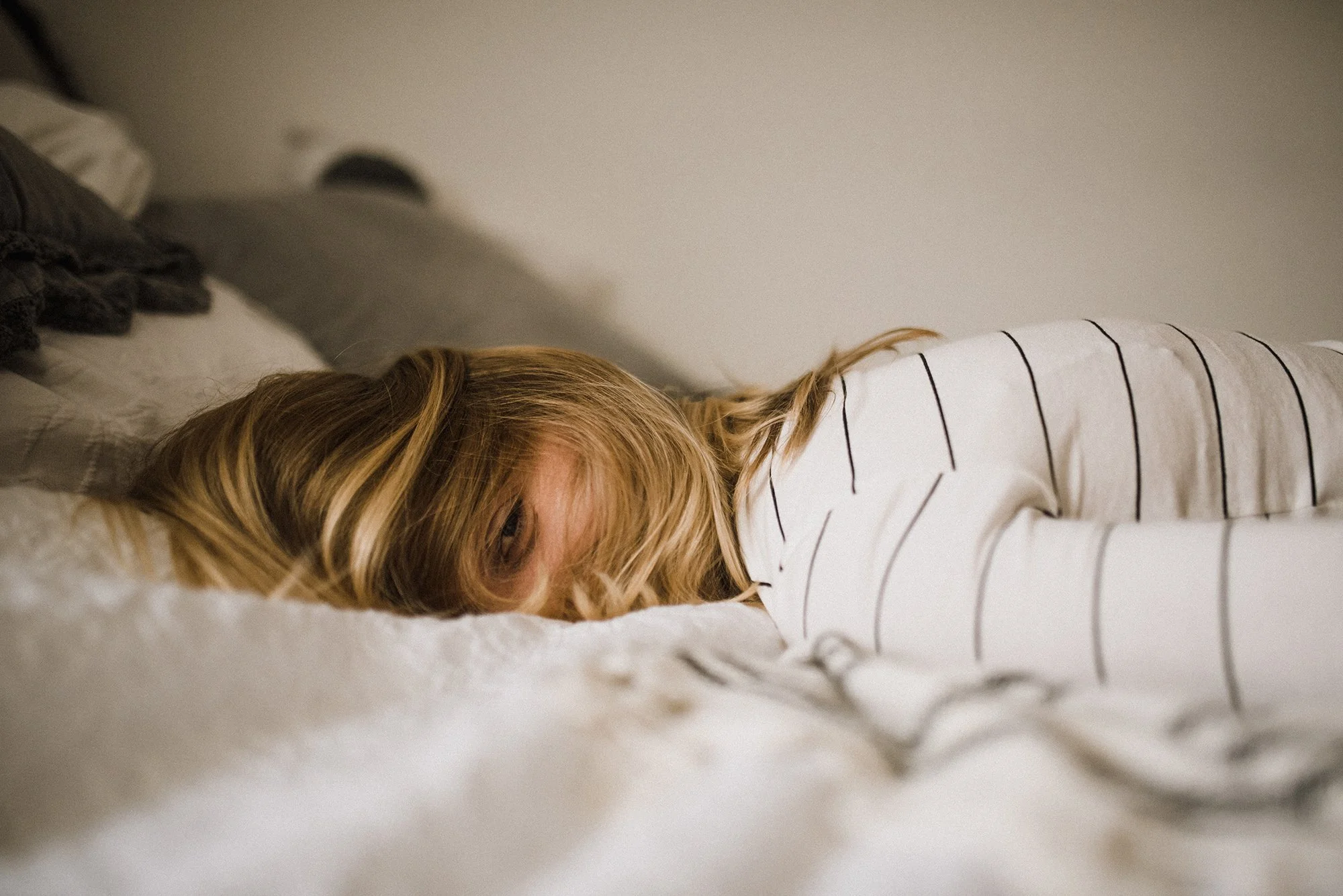Sleeping problems
Overcome your sleep difficulties now.
Most people have experienced difficulties sleeping at some point. Usually, these problems are temporary and do not cause major concerns. However, when sleep disturbances reach a level where it feels impossible to function properly, it can become a significant issue. Sleep problems can manifest in different ways, such as difficulty falling asleep, an inability to stay asleep, or poor sleep quality. The quality of our sleep is closely linked to our overall well-being, and the underlying causes of sleep problems are often highly individual. There are usually physiological, mental, and practical factors contributing to sleep difficulties.
Sleep difficulties can be treated
Sleep problems are often an early sign of stress, anxiety, or depression. A common feature among most people suffering from sleep disturbances is the development of strong anxiety about sleep itself. There are several treatment methods for sleep issues, and some of the most effective include sleep restriction and stimulus control. This involves keeping a sleep diary to track sleeping patterns and identify problem areas.
Building a sleep routine
It is essential to establish consistent sleep routines, as people with sleep problems benefit from good habits. Some key aspects include:
Wake up at a consistent time – waking up too late makes it harder to fall asleep at night because the body needs a certain number of hours awake to feel tired.
Exercise, but not too late – physical activity helps reduce stress hormones and improves sleep quality. However, exercising too late in the evening can make you feel too alert, making it harder to fall asleep.
Avoid caffeine late in the day – it is crucial to limit caffeine intake in the evening, as it can interfere with falling asleep.
Get morning sunlight – exposure to natural light in the morning helps regulate melatonin production, which improves sleep quality.
Use the bedroom only for sleep – the bedroom should be associated only with sleep. If you engage in wakeful activities in bed, your brain may associate the bedroom with alertness rather than rest. The room should be dark, cool, and comfortable to promote good sleep.
Sleep problems and their impact on life
Sleep is one of the most crucial factors for our overall functioning. If you struggle with sleep, daily life and work can become difficult to manage. Book a consultation with us to get help with your sleep problems.
Sleep is regulated by the body
Sleep is a fundamental biological need, and like all other needs, the body compensates when deprived. That is why napping during the day can be counterproductive for those with sleep issues, as it reduces the body's natural sleep drive at night.
Many people underestimate how much sleep they actually get. Keeping a sleep diary can reveal that they are getting more rest than they thought. Additionally, the body has a natural recovery mechanism called delta sleep, which means that after a poor night's sleep, the body will enter deep sleep more quickly the following night to compensate. This is the body's way of ensuring adequate rest over time.
Sleep problems due to sleep anxiety
For many people, sleep issues are not just about actual sleep deprivation but also about worrying about not getting enough sleep. Over time, individuals may associate sleep and their bed with anxiety, making it harder to relax.
Many people experience repeated sleepless nights, where they lie awake catastrophising about the next day, thinking, "I won’t be able to function tomorrow because I didn’t sleep enough." These anxious thoughts create a negative cycle, making it even harder to fall asleep.
Recommendations for sleep problems
There are several strategies to help improve sleep quality and break the cycle of sleep anxiety:
Get out of bed after 15 minutes if you can’t sleep – if you’re struggling to sleep, leave the bed and do a relaxing activity, such as reading, until you feel tired again. Staying in bed awake can reinforce negative associations with sleeplessness.
Create a wind-down routine before bed – a relaxing pre-sleep routine can help signal to the body that it’s time to rest.
Eliminate screens before bed – phones, tablets, and TVs emit blue light, which suppresses melatonin production and makes it harder to fall asleep.
Avoid stimulating activities before bed – checking work emails or social media before bed can keep your brain active and delay sleep onset.
Sleeping issues because of stress
Stress is a major contributor to sleep issues since stress hormones keep the body in a state of fight or flight, making relaxation difficult. If stress is the primary issue, it may be necessary to treat stress and anxiety before directly addressing sleep problems.
When underlying mental health conditions such as depression, stress, or anxiety are present alongside sleep issues, these must be assessed. In some cases, treating the root cause of these conditions can significantly improve sleep quality.
Get expert help today. Sleep problems are highly treatable with the right support and guidance.




